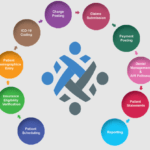Introduction
How to Prepare for an Medical Billing Job Interview, If you’re interested in a career in healthcare, working as an Medical Coding, Charges Entry, Clearing House Rejections, Payment Posting, Denial Management, Refund Process and Accounts Receivable (AR) Caller or Ananlyst may be an excellent option for you. Working in medical billing and coding and are responsible for following up with insurance companies and patients to ensure that medical bills are paid. If you’ve applied for any of the Medical Billing job position, you may be wondering how to prepare for your upcoming interview. In this article, we’ll provide you with some tips and strategies to help you stand out from other candidates and ace the interview.

Research the Company and the Industry
Learn about the company and the industry to show your interviewer that you’re knowledgeable and passionate about the healthcare industry.
Before you go into your Medical Billing interview, you should research the company and the healthcare industry. This will help you show your interviewer that you’re knowledgeable and passionate about the industry. Some things you can research include:
- The company’s mission, vision, and values
- The company’s products and services
- The company’s culture and work environment
- The latest healthcare news and trends
By doing your research, you’ll be able to demonstrate to your interviewer that you’re serious about the job and that you have a deep understanding of the healthcare industry.
Review Your Skills and Qualifications
Make a list of your skills and qualifications and review them before your interview to help you confidently answer any questions your interviewer may ask.
As an Medical Billing jobe applicant, you’ll need to have a variety of skills and qualifications to be successful in the job. These may include:
- Knowledge of medical billing and coding
- Strong communication and interpersonal skills
- Attention to detail
- Problem-solving skills
- The ability to work well under pressure
- Knowledge of insurance regulations and policies
Before your interview, make a list of your skills and qualifications and review them. This will help you confidently answer any questions your interviewer may ask and demonstrate that you have the skills and qualifications necessary to succeed in the job.
Practice Common Interview Questions
Practice common interview questions to help you feel more comfortable and confident during your Medical Billing interview.
During your interview, your interviewer may ask you a variety of questions to assess your skills, experience, and qualifications. Some common interview questions for Medical Billing jobs may include:
- What experience do you have in medical billing? This is a standard question in any interview, and it’s a great opportunity to highlight your experience and expertise in the field. Be specific about your experience, including the types of clients you’ve worked with, the software or systems you’re familiar with, and any notable achievements or accomplishments.
- How do you ensure accuracy in medical billing? Accuracy is key in medical billing, so be prepared to discuss the steps you take to ensure accuracy in your work. This may include double-checking your work, verifying insurance information, and staying up-to-date on the latest billing codes and regulations.
- How do you handle denials or rejections of claims? Denials or rejections of claims can be frustrating, but they’re also a common part of medical billing. Be prepared to discuss your approach to handling these situations, including how you work with clients to resolve issues, and how you advocate for their needs.
- How do you stay up-to-date on changes in medical billing regulations and codes? Medical billing regulations and codes are constantly changing, so it’s important to stay informed. Discuss the steps you take to stay up-to-date on changes, such as attending conferences or webinars, reading industry publications, and collaborating with colleagues.
- How do you prioritize tasks and manage your workload? Medical billing can be a fast-paced and demanding field, so it’s important to be able to manage your workload effectively. Discuss your approach to prioritizing tasks, including how you use technology or tools to streamline your workflow, and how you communicate with clients and colleagues to ensure that deadlines are met.
- How do you communicate with healthcare providers and insurance companies? Effective communication is crucial in medical billing, so be prepared to discuss your approach to communicating with healthcare providers and insurance companies. This may include your strategies for explaining complex billing concepts, negotiating with insurance companies, and advocating for your clients.
- What are your strengths and weaknesses in medical billing? Be prepared to discuss your strengths and weaknesses in medical billing, and provide specific examples of how you’ve overcome challenges or capitalized on your strengths. This can demonstrate your self-awareness and your ability to learn and grow in the field.
By preparing for these common interview questions for medical billing jobs, you can increase your confidence and improve your chances of landing the job. Remember to be specific, provide examples, and communicate your passion for the field. Good luck!
Dress Professionally and Arrive Early
Finally, it’s important to present yourself in a professional manner during your interview. This means dressing appropriately for the job, arriving early to allow for any unexpected delays, and being courteous to everyone you meet. Remember that your interview begins the moment you walk through the door, so make sure to put your best foot forward from the start.
Conclusion
Preparing for an Medical Billing interview requires a combination of technical knowledge, communication skills, and professionalism. By researching the company, reviewing medical billing and coding concepts, practicing your communication skills, preparing for technical questions, and familiarizing yourself with insurance guidelines and regulations, you can increase your chances of success. Remember to dress professionally, arrive early





